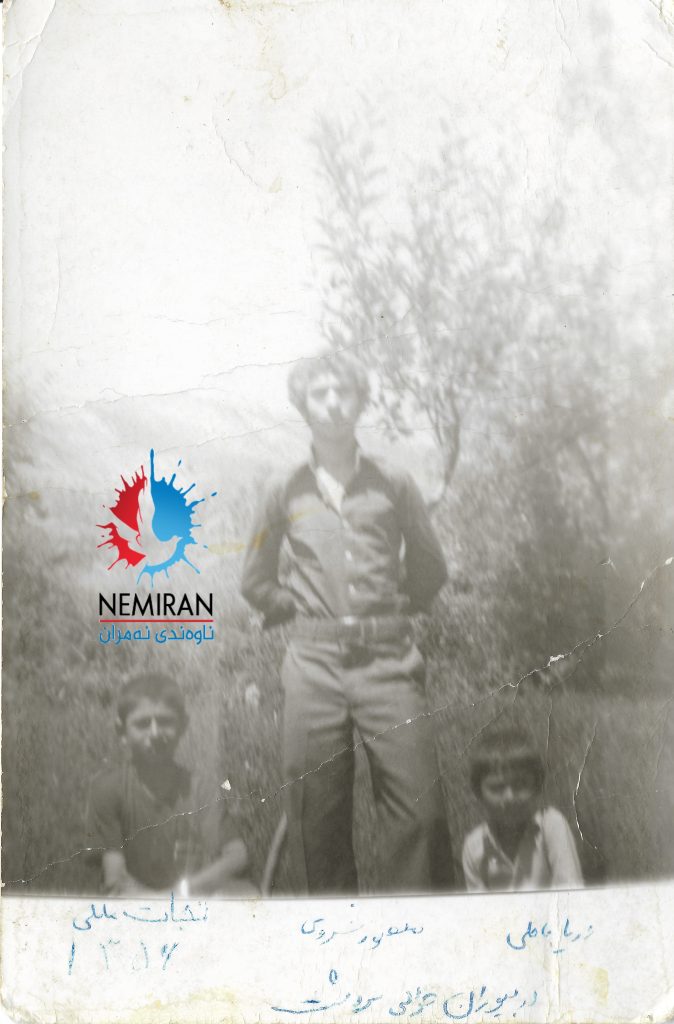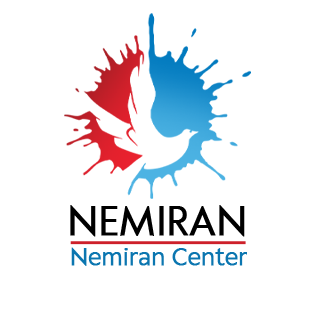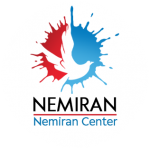Οn 9/8/1339 Iranian Calendar (31/10/1960), in the city of Mahabad, Zahra Qader Darvishi (mother)and Mohi-ad-Din Khosravi (father) gave birth to a son named Mansour. Mansour’s father, who was a teacher, was officially transferred to Sardasht city to continue teaching. The people of Sardasht welcomed him with a loving embrace. His children grew up in this city. Mansour’s parents did their best to raise their children in the best way so that they could be successful in society and serve the people proudly. Ayub Khosravi, Mansour’s living brother, says in this regard:
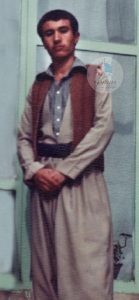
“In 1357 Iranian Calendar (1978), I was studying in the second grade of high school. One year ago, after years of requesting and requesting from my father, I became a member of an organization called the “Mobile Seeker”, a scout-like association. I have been a classmate with Mansour for several years. A week in spring had been called “Charity Week” for those two communities, the Mobile Seeker or Scout Associations. In spring of 1357 (1978), on the first day of the Charity Week, we were gathered in the courtyard of the high school by the head of the association, Mr. Dasturi, and we were divided into two man groups. They defined tasks for each of the two man groups. Their goal was to raise money and distribute it among the needy.
Mansour and I got a Polaroid camera at the suggestion of Mr. Dasturi. We should take pictures of the people, gather donations and hand them over to our association. We were reminded to refer to government departments to take photos of officials and heads of government departments and institutions. I remember that we visited several departments and institutions, including the Department of Education and the Governor’s Office on that day. This resulted finally to raising a lot of money. We handed it over to Mr. Dasturi. A few months later and just when Mansour got a high school diploma, a wave of demonstrations and protests reached our city of Sardasht. Mansour participated actively in most of these protests. He was injured during a demonstration on 14/9/1357 (5/12/1978) when army forces from the Sardasht garrison attacked the protestors in the streets of the city in armors to suppress the demonstrations.
Mansour’s father continued serving in the education department. After the revolution of the Iranian people, Mansour’s family returned to Mahabad city and settled there. Mansour, like many of his
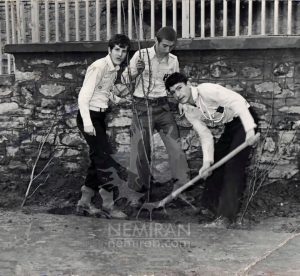
Contemporaries could not be indifferent to the events of that period. The regime of the Islamic Republic attacked the city of Mahabad to seize the city, which was then under the control of Kurdish parties. He helped doctors and the wounded of that war engaged and spontaneously, as a patriotic and politically neutral person.
Mansour Khosravi was arrested on 9/8/1359 Iranian Calendar (31/10/1980) by mercenaries of the Revolutionary Guards. His arrest was completely arbitrarily, he was transferred to Urmia Prison.
Nine days after his arrest in Urmia Prison he and seven others were persons were shot to death on 18/8/1359 Iranian Calendar (9/11/1980) without any trial in retaliation for the dying of several Revolutionary Guards who had been killed in clashes with the Democratic Party of Iranian Kurdistan. The names of the four fellow prisoners who were shot with Mansour were as follows:
2 – Fakhri Sheidayi
3 – Hossein Naghadayan
4 – Karim Irandoost
Ayub Khosravi, Mansour’s brother, narrates the tragic fate of his brother:
“In the beginning, when we got the news of Mansour’s arrest, we tried to find out how the manner of his arrest was and where he was detained. For this purpose, we went to the garrison of the Revolutionary Guards and waited in front of the entrance door. There we were told that he had been transferred to Urmia Prison and that we should visit him there.
When we arrived in Urmia Prison to visit him, we were told in disbelief that the bodies of the seven executed persons had been handed over to the mother of Hossein Naghadayan (one of the seven executed) in order to be transported to Mahabad.
This mother transported her son’s corpse to Mahabad along with 6 other corpses and informed their families.
The memory of Mansour and all other immortals will remain in our hearts forever.
